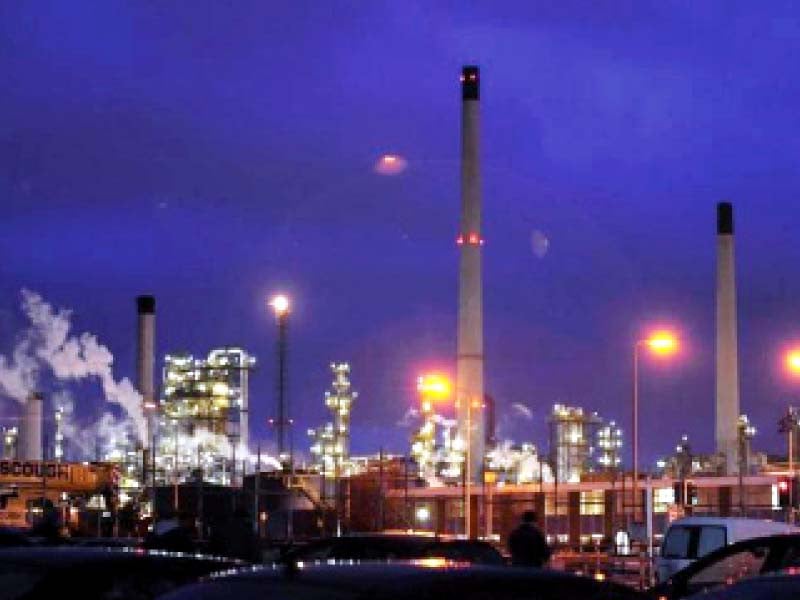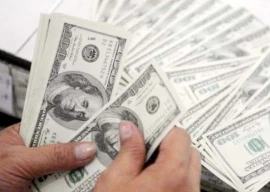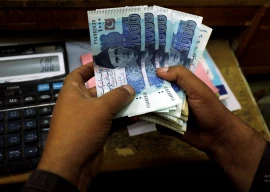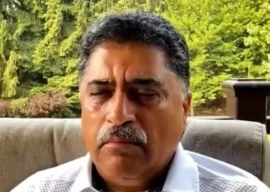
The oil refining industry is operating on negative returns on equity because of volatility in international crude oil prices, said Petroleum Division.
The division made the disclosure in a presentation submitted to the Cabinet Committee on Energy (CCOE). The committee will take up for review the draft of Refining Policy 2021 on Thursday (December 16). The Petroleum Division presented a comparison of the return on equity for oil refineries and other sectors like hydrocarbon exploration, fertiliser, auto and power.
Tractor, fertiliser and exploration companies are getting higher rates of return on equity.
Sources told The Express Tribune that National Refinery Limited (NRL) was operating at 13.6% negative return on equity, Pak Arab Refinery (Parco) also at 13.6% negative return, Attock Refinery Limited (ARL) at 6.4%, Byco 9.3% and Pakistan Refinery Limited (PRL) at zero return. The entire refining industry has equity of Rs176.2 billion and is operating at 15.5% negative return.
In comparison, according to the presentation, the auto sector has total equity of Rs64.1 billion and its return on equity stands at 14.5%.
In the fertiliser sector, the total equity amounts to Rs174.6 billion and the return on equity is calculated at 29.2%.
Some power companies are getting return on equity in the range of 13-39%.
In the exploration industry, Pakistan Oilfields is receiving the highest return of 40.7% on equity of Rs40.3 billion, Pakistan Petroleum Limited is getting 14.6% return on equity of Rs344.6 billion and Oil and Gas Development Company is enjoying 14.5% return on equity of Rs688.9 billion.
CCOE will meet on Thursday to consider the draft of new oil refining policy for approval in the backdrop of negative returns for the oil refineries.
Separately, Energy Minister Hammad Azhar will hold a meeting with chief executive officers of all oil refineries.
The government has already approved 10% tariff protection for the refineries to facilitate them in upgrading their plants.
Earlier, the CCOE had sought information about the collection of deemed duty by the refineries and the investment made out of the receipts to upgrade the plants.
The Petroleum Division informed the cabinet body that the existing refineries had collected over Rs200 billion and spent the same on plant upgrades.
Parco has spent Rs66 billion, ARL Rs29 billion, NRL Rs36 billion, PRL Rs17 billion and Byco Rs52 billion.
In its revised draft, the Petroleum Division said that refineries would be allowed to invest 30% in project upgrades out of the incremental revenue from upfront tariff whereas they would invest 70% out of the equity.
Earlier, the division had proposed that refineries should be allowed to invest 40% out of the incremental revenue.
It has withdrawn tax holiday from the previously proposed period of 10 years for the existing refineries.
There will be no further refinement of the Special Reserve Account mechanism to ensure plant upgrade and modernisation. There will also be no withdrawal of funds from the Special Reserve Account till the award of engineering, procurement and construction (EPC) contracts.
According to the proposed draft, the refineries will provide bank guarantee of Rs500 million till the start of commercial operation.
The government will not allow dividend payment and adjustment of losses against the Special Reserve Account.
The Petroleum Division also recommended that there would be no import duties and sales tax on the import of petroleum crude oil effective from July 1, 2022, which was the main raw material of refineries.
Published in The Express Tribune, December 15th, 2021.
Like Business on Facebook, follow @TribuneBiz on Twitter to stay informed and join in the conversation.



















COMMENTS
Comments are moderated and generally will be posted if they are on-topic and not abusive.
For more information, please see our Comments FAQ